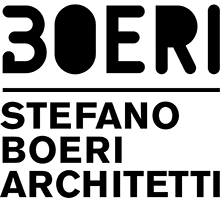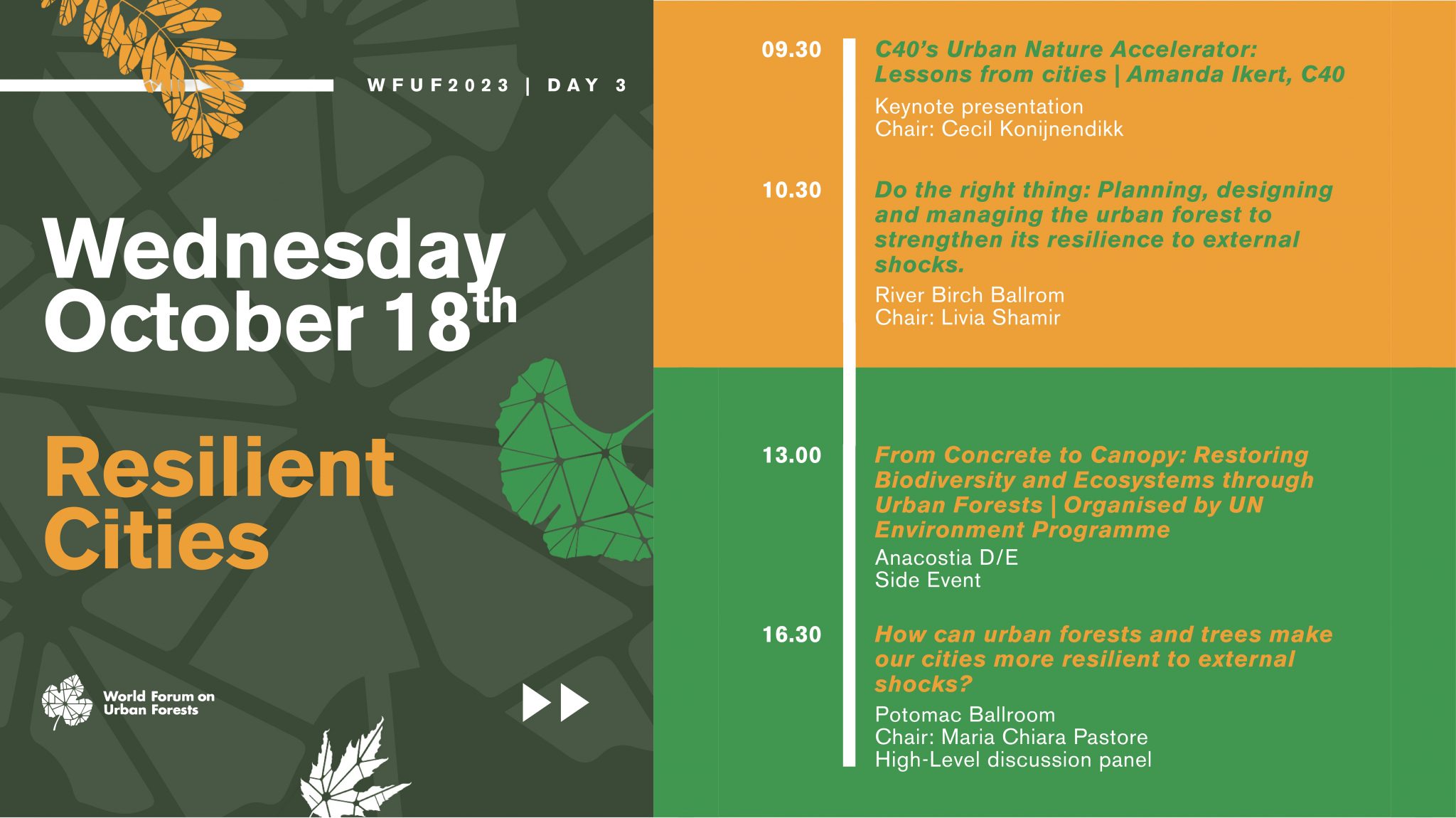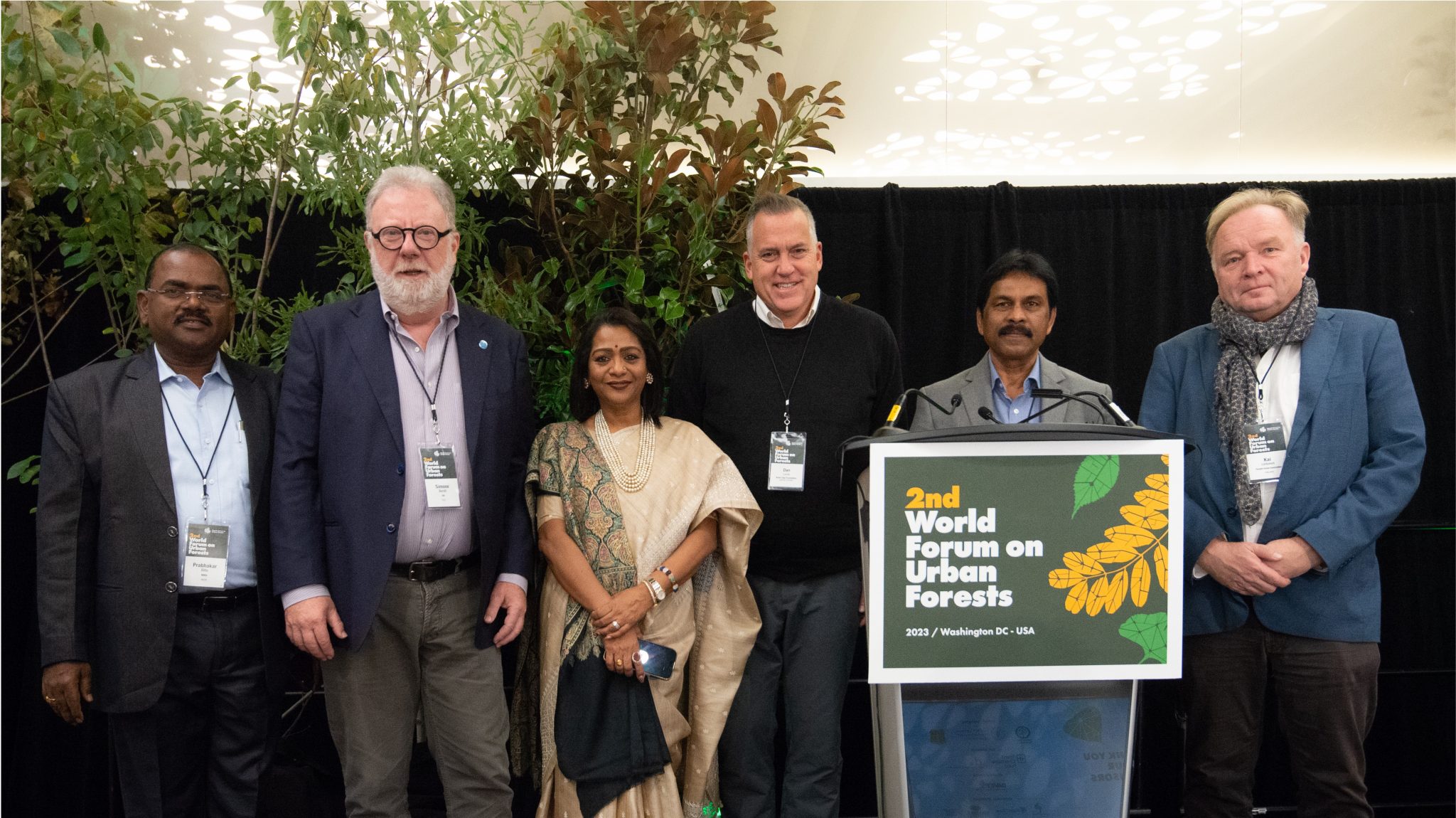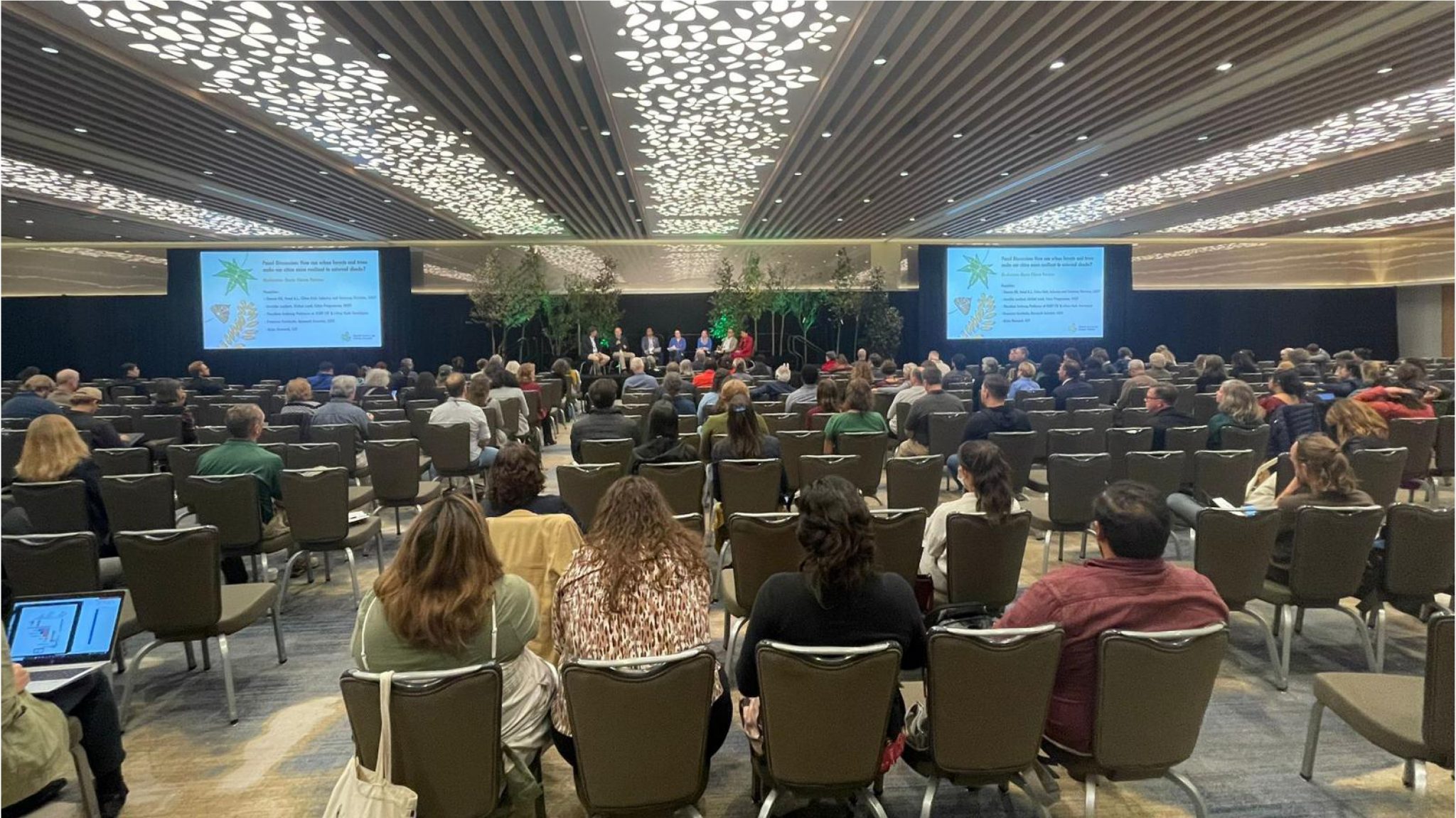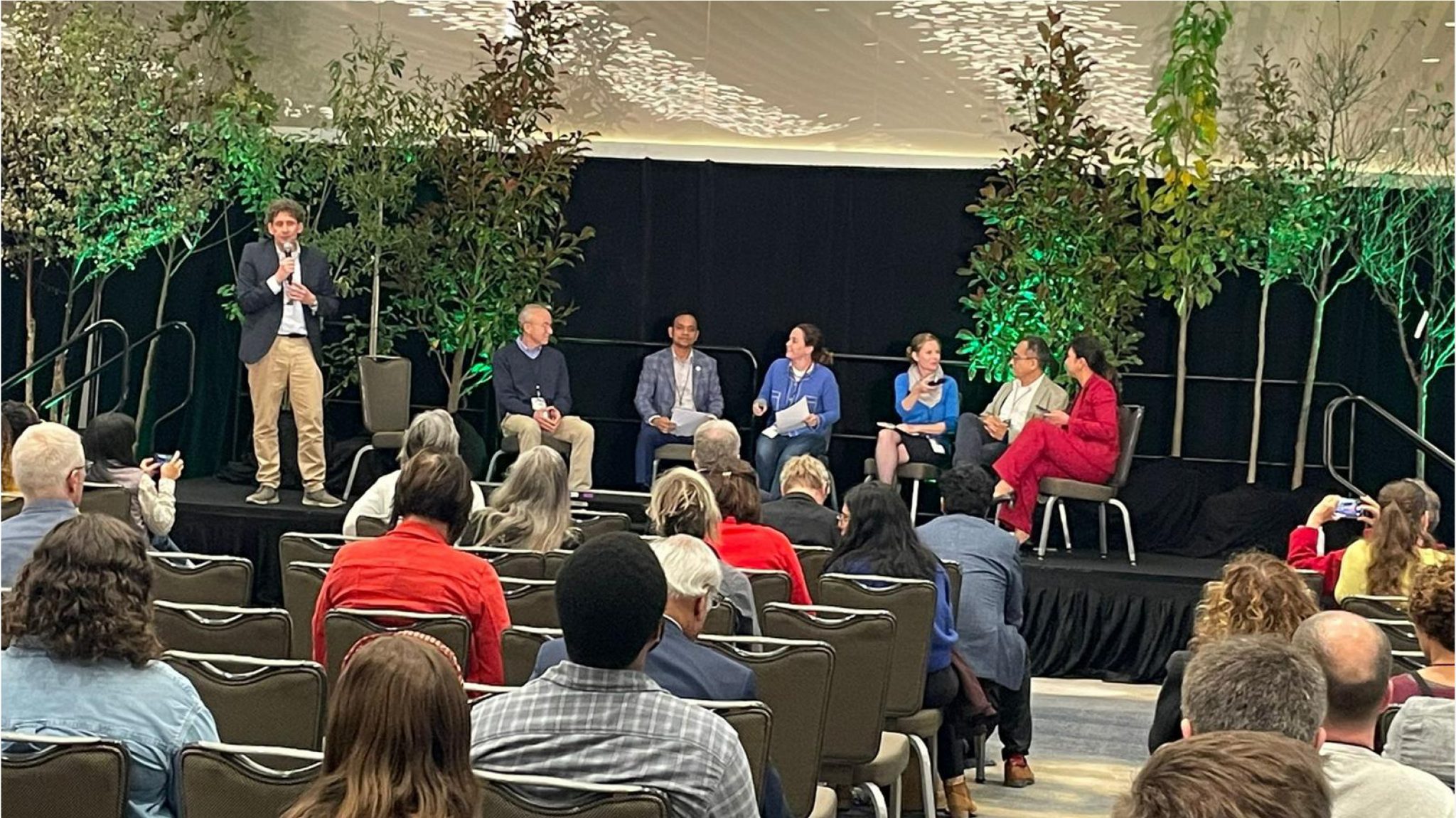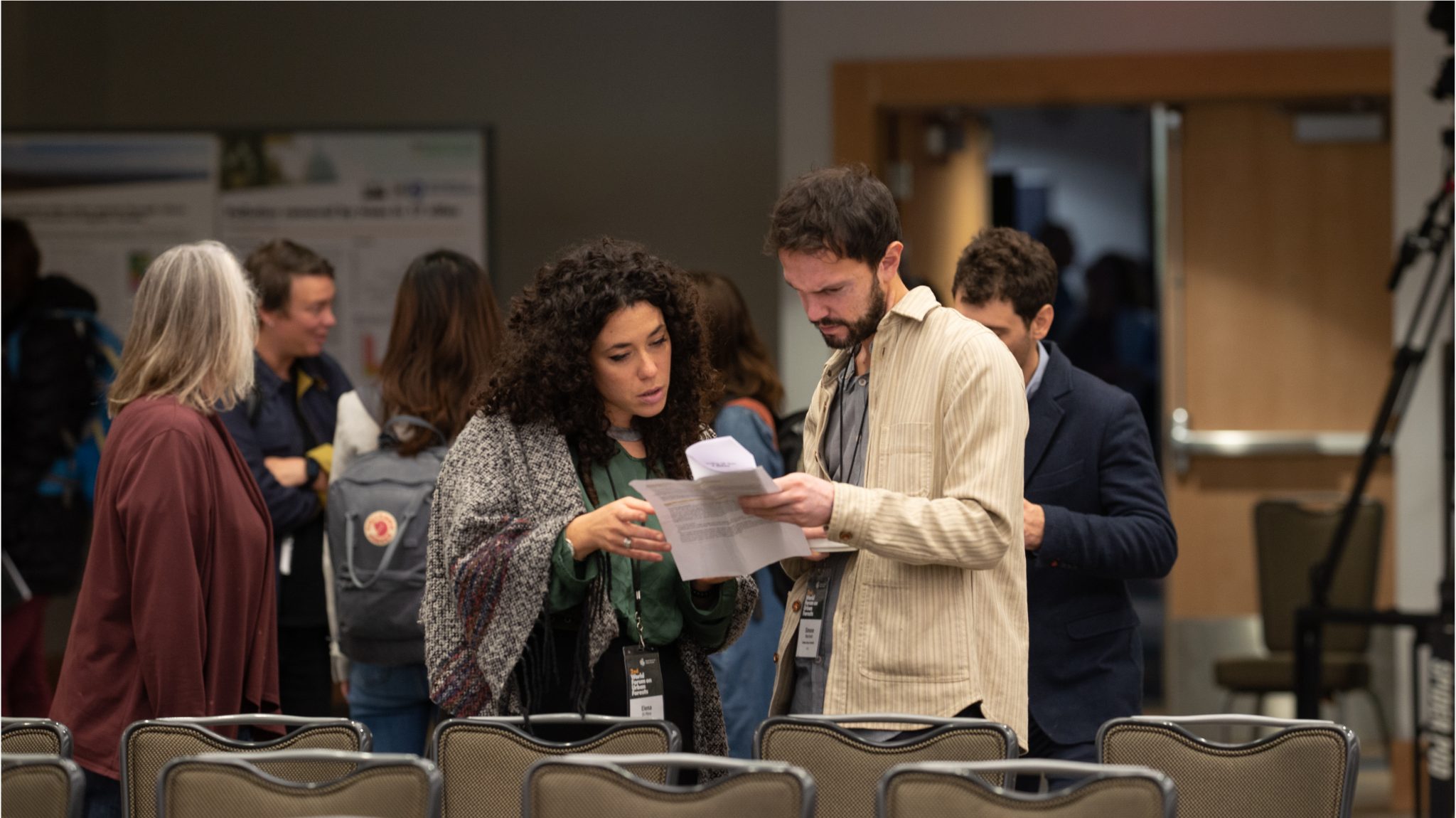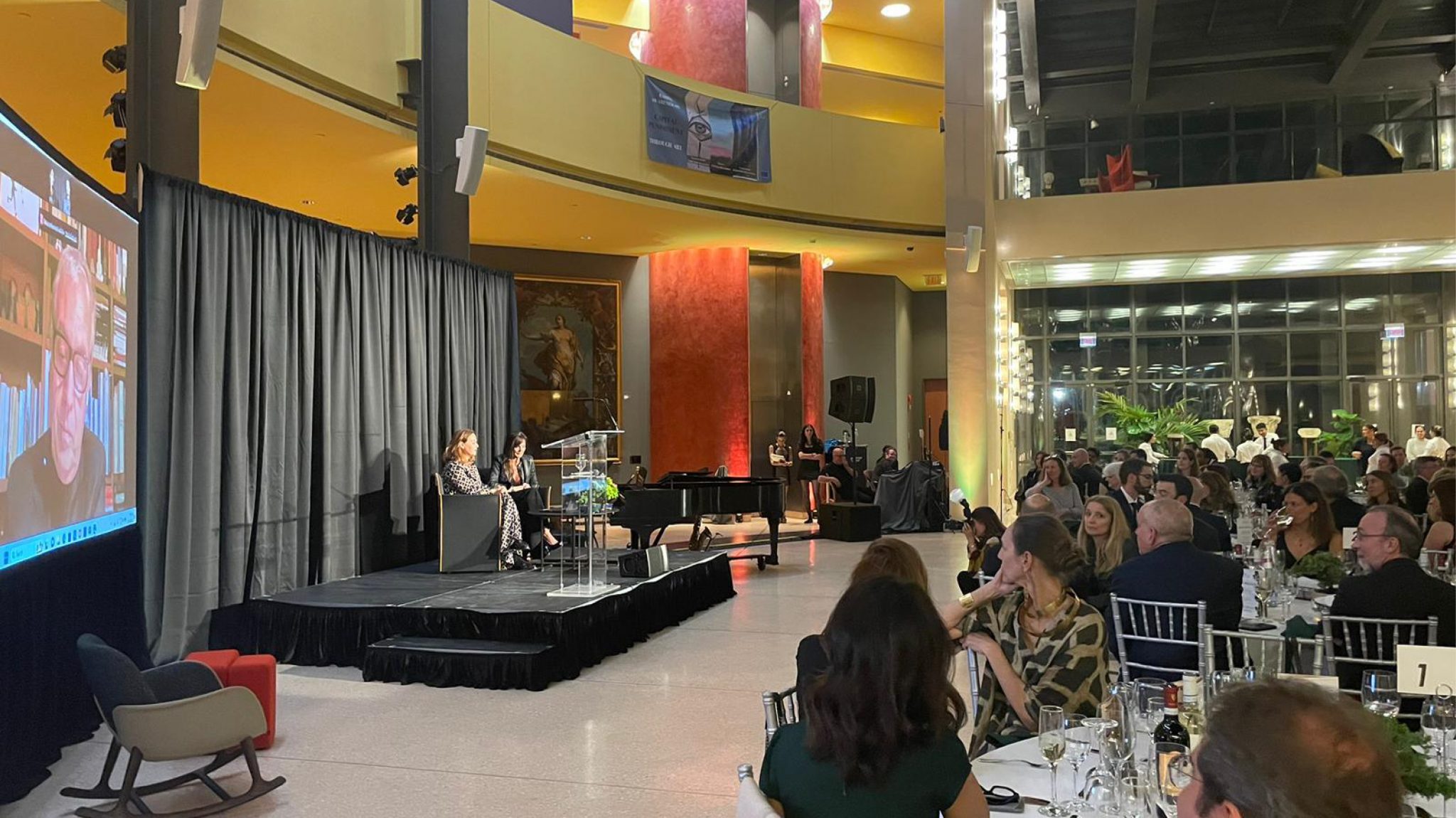Wednesday October 18th saw the third day of the World Forum on Urban Forests (WFUF2023) in Washington D.C., themed Resilient Cities.
Organised thanks to the collaboration of FAO, Arbor Day Foundation, the United States Forest Service (USFS), the Smithsonian Institution, the Politecnico di Milano, the Italian Society of Silviculture and Forest Ecology (SISEF) and the International Society of Arboriculture (ISA), this second event – following the 2018 Forum held in Mantua – has as its main theme Greener, Healthier and Happier Cities for All, to emphasise the importance of building inclusive cities in which the ecosystem goods and services of forests and trees are fairly and equally available to all city dwellers.
The event, of which Stefano Boeri Architetti is a technical partner, has Stefano Boeri as a member of the Scientific Committee.
The third day saw presentations and speeches focusing on the ability of vegetation to regenerate the urban environment, improving its quality and liveability.
Particular attention was given to the conditions for ensuring the well-being of plants and trees in urban forests, reducing the risk to their health and safety, and monitoring their response to stress related to climate change and the urban heat island effect.
Among the events:
h:9.30 | C40’s Urban Nature Accelerator: Lessons from cities | Amanda Ikert, C40 | Chair: Cecil Konijnendikk
h:10.30 | Do the right thing: Planning, designing and managing the urban forest to strengthen its resilience to external shocks | Chair: Livia Shamir, Project leader of the Research Department of Stefano Boeri Architetti
h:13.00 | From Concrete to Canopy: Restoring Biodiversity and Ecosystems through Urban Forests | Organised by UN Environment Programme
h:16.30 | How can urban forests and trees make our cities more resilient to external shocks? | Chair: Stefano Boeri Architetti
Among the topics discussed:
– education on urban forestry: international training courses and programmes on urban forestry;
– the role of the C40 network in supporting urban adaptation processes (e.g. through the inclusion of nature and nature-based solutions to mitigate urban temperature);
– city biodiversity index to monitor the impact of urban development on biodiversity;
– case studies were also presented: Bogotá and the ’21 lungs for Bogotá’ forestation project; Cape Town, Hyderabad, La Paz, Washington DC, Kampala, Philadelphia, Baltimore, Glasgow.
On the evening of October 18th, the Gala Awards Dinner was also held at the Italian Embassy, organised by the Italian Cultural Society, a non-profit organisation dedicated to enhancing and promoting Italian culture worldwide, which was attended remotely by Stefano Boeri as Honorary Guest, in conversation with Lavinia Fici Pasquina, Professor of Architecture & Planning (CUA Washington D.C.).
For more information: www.worldforumonurbanforests.org
